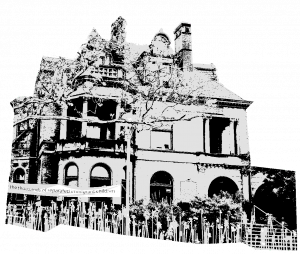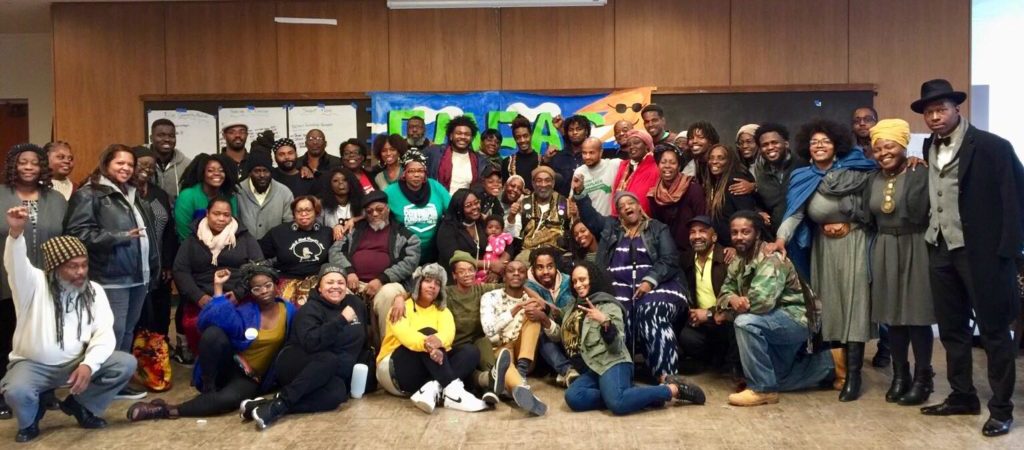East Michigan Environmental Action Council (EMEAC) is a non-profit, public interest group which was founded in 1970. EMEAC’s mission “is to protect and restore land, air, water and diversity of life through informed personal and public action.”
East Michigan Environmental Action Council (EMEAC) began as a response in the 1960’s to environmental concerns in southeast Michigan. Algae blooms were choking out life in Great Lakes and inland waters. Household and industrial wastes were piling up in landfills. Air pollutants were becoming a health issue in many urban neighborhoods and highways and buildings were covering up wetlands and open areas at the urban fringe.
Several groups joined together forming EMEAC to consider what they could do to resolve these problems and to influence southeast Michigan’s environmental policies. A cornerstone of EMEAC’s formation was the belief that informing the public about environmental issues would lead to solutions to environmental problems. Founding members and staff established an organization that would always predicate its public information and advocacy on careful research. With the help of our members’ continuing support and enthusiasm, EMEAC will continue to pursue its mission: “to protect and restore land, air, water, and diversity of life through informed personal and public action.”
For almost fifty years, EMEAC has been working in the legislature, in the courts, in township halls and in schools. We played a role in the enactment of most of Michigan’s environmental laws. We have used those laws in court to protect air and water quality, wetlands, natural areas, farmlands and wildlife. We have drafted regulations for local governments and have provided public information and environmental education opportunities throughout southeast Michigan.
Originally centered in the suburbs of Detroit, a conscious move was made back to the heart of Detroit, surrounded by the neighborhoods filled with some of the most at-risk frontline communities, facing environmental racism, in need of environmental justice.
In 2012, the First Unitarian Universalist Church of Detroit transfered ownership of its campus at Cass and Forest to EMEAC to develop Cass Commons as a home and hub for justice movement work.
Some of EMEAC’s accomplishments in protecting land, air, and water include:
- Stopping proposed road extensions into undeveloped areas.
- Drafting and guiding enactment of amendments to the Michigan Pesticide Control Act to provide better protection, especially for children.
- Organizing opposition in southeast Michigan to USDA’s proposed rule for determining which food products are allowed to carry the “organic” label.
- Better pollution control technology on the Greater Detroit Resource Recovery Authority.
- Helping to formulate the mix of air pollution control strategies in southeast Michigan to meet or exceed Clean Air Act requirements.
- Court ordered conversion of a Detroit Edison utility plant from coal to natural gas as a condition of start-up.
- Campaigning for amendments to the Safe Drinking Water Act to establish the right of consumers to be notified of contaminants in their water and to challenge any weakening of water quality standards.
- Assisting local governments in drafting storm water management ordinances to prevent construction runoff from degrading the quality of wetlands, inland lakes, and streams.
- Spearheading public support for enactment of the Michigan Wetlands Protection Act. The Act has reduced the destruction of Michigan wetlands, especially along the Great Lakes
Working with planners, lawyers, and consultants to prepare a model wetlands ordinance designed to help communities protect important wetlands and meet the requirements of the new state law. - Joining with the Endangered Species Coalition to prevent anti-environmental interests in Congress from gutting the Endangered Species Act
- Presenting environmental programs to over 27,000 elementary and middle school children in southeast Michigan.
Presenting over 40 public forums, most recently on natural landscaping and environmental ethics.
Several of EMEAC’s accomplishments in preserving biological diversity include:
- Spearheading public support for enactment of the Michigan Wetlands Protection Act. The Act has reduced the destruction of Michigan wetlands, especially along the Great Lakes.
- Working with planners, lawyers, and consultants to prepare a model wetlands ordinance designed to help communities protect important wetlands and meet the requirements of the new state law.
- Joining with the Endangered Species Coalition to prevent anti-environmental interests in Congress from gutting the Endangered Species Act.
EMEAC’s accomplishments in raising the level of public understanding about environmental issues include:
- Presenting environmental programs to over 27,000 elementary and middle school children in southeast Michigan.
- Presenting over 40 public forums, most recently on natural landscaping and environmental ethics.

















